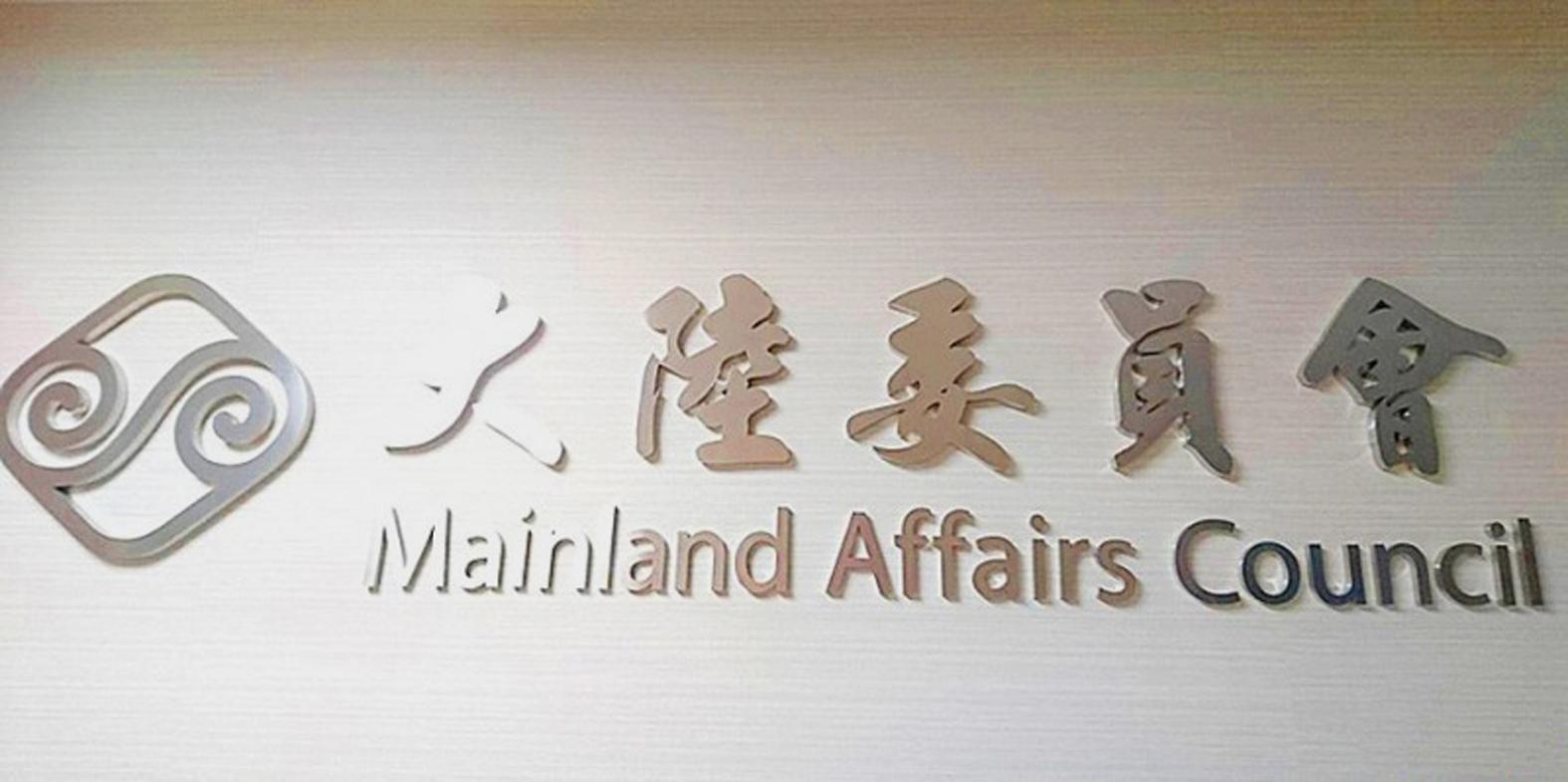Pro-Beijing pandering by the Chinese Nationalist Party (KMT) chairman-elect ignores the facts and would allow the party to become a target for China’s “united front” tactics, the Mainland Affairs Council (MAC) said yesterday.
The KMT on Saturday elected former New Taipei City mayor Eric Chu (朱立倫) as chairman on promises of reopening all channels of communication with the Chinese Communist Party (CCP).
Chinese President Xi Jinping (習近平) yesterday sent a letter congratulating Chu and calling for cooperation between the parties amid a “complex and grim” situation in the Taiwan Strait.

Photo: Chung Li-hua, Taipei Times
Chu in response expressed his wish that the parties could seek common ground on the basis of the so-called “1992 consensus” and opposition to Taiwanese independence.
The MAC later in the day condemned Chu for his remarks that “cater to the CCP while ignoring the facts.”
By placing the blame for cross-strait tensions at the feet of the Democratic Progressive Party (DPP) government, the KMT is allowing itself to become the primary target for Beijing’s “united front” efforts to divide Taiwanese, the council said.
The government is committed to preserving peace across the Taiwan Strait, but CCP authorities repeatedly threaten and suppress the nation’s military and diplomatic efforts, destroying the “status quo” while refusing to communicate, it said.
These are the main sources of cross-strait tensions and the biggest challenges Taiwan faces, it said, adding that Beijing’s actions have been condemned by Taiwanese and the international community alike.
Chu’s black-and-white statements accusing the DPP of obstructing China portend that the KMT’s cross-strait policy is to drift farther from public opinion, it said.
The council also urged the KMT to understand how Beijing’s definition of the “1992 consensus” denies Taiwanese sovereignty and interactions on this basis have repeatedly failed to gain public support.
The DPP also condemned Chu’s response to Xi’s letter, saying that no other political party in a democracy would expect to receive a congratulatory message from the leader of an autocratic government.
Chu only cares about meeting Beijing’s expectations while ignoring mainstream domestic public opinion, it said, adding that this kind of leadership cannot carry the KMT into a new era as Chu has promised.
The DPP also decried Chu’s failure to hold the true perpetrators to account while blaming the victims.
Chu’s criticism of his deep-blue opponent, Sun Yat-sen School president Chang Ya-chung (張亞中), during the campaign suggested a move away from the old KMT party line, but he lacked the courage to refute Xi’s alignment of the two parties, the DPP said, calling his unwillingness to speak up for public opinion “regrettable.”
The “1992 consensus,” a term former Mainland Affairs Council chairman Su Chi (蘇起) in 2006 admitted making up in 2000, refers to a tacit understanding between the KMT and the Chinese government that both sides of the Taiwan Strait acknowledge there is “one China,” with each side having its own interpretation of what “China” means.

CHAOS: Iranians took to the streets playing celebratory music after reports of Khamenei’s death on Saturday, while mourners also gathered in Tehran yesterday Iranian Supreme Leader Ayatollah Ali Khamenei was killed in a major attack on Iran launched by Israel and the US, throwing the future of the Islamic republic into doubt and raising the risk of regional instability. Iranian state television and the state-run IRNA news agency announced the 86-year-old’s death early yesterday. US President Donald Trump said it gave Iranians their “greatest chance” to “take back” their country. The announcements came after a joint US and Israeli aerial bombardment that targeted Iranian military and governmental sites. Trump said the “heavy and pinpoint bombing” would continue through the week or as long

TRUST: The KMT said it respected the US’ timing and considerations, and hoped it would continue to honor its commitments to helping Taiwan bolster its defenses and deterrence US President Donald Trump is delaying a multibillion-dollar arms sale to Taiwan to ensure his visit to Beijing is successful, a New York Times report said. The weapons sales package has stalled in the US Department of State, the report said, citing US officials it did not identify. The White House has told agencies not to push forward ahead of Trump’s meeting with Chinese President Xi Jinping (習近平), it said. The two last month held a phone call to discuss trade and geopolitical flashpoints ahead of the summit. Xi raised the Taiwan issue and urged the US to handle arms sales to

State-run CPC Corp, Taiwan (CPC, 台灣中油) yesterday said that it had confirmed on Saturday night with its liquefied natural gas (LNG) and crude oil suppliers that shipments are proceeding as scheduled and that domestic supplies remain unaffected. The CPC yesterday announced the gasoline and diesel prices will rise by NT$0.2 and NT$0.4 per liter, respectively, starting Monday, citing Middle East tensions and blizzards in the eastern United States. CPC also iterated it has been reducing the proportion of crude oil imports from the Middle East and diversifying its supply sources in the past few years in response to geopolitical risks, expanding

OTHER OPTIONS: Given possible US intervention and Taiwanese counterattacks, China might opt to blockade Taiwan or take its outlying islands instead of an all-out invasion A US think tank has urged Taiwan to adopt a “hellscape” strategy that would flood the Taiwan Strait with drones and other uncrewed systems to deter invasion by China. In its report, Hellscape for Taiwan, published on Thursday, the Center for a New American Security said Taipei’s asymmetric defense approach — often described as a “porcupine strategy” — needs to evolve to keep pace with the growing capabilities of the Chinese People’s Liberation Army. The “hellscape” strategy involves saturating the air and waters around Taiwan with thousands of drones and other platforms capable of striking invading forces from multiple domains at once. Long-range